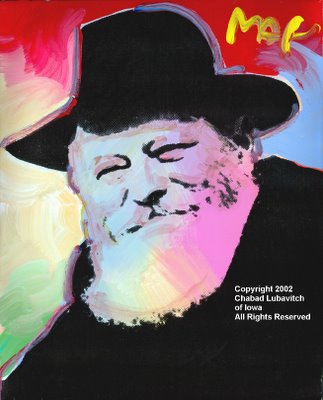
A report on the three day convention at New York University appears in the (New York) Jewish Week under the title Lubavitcher Rebbe Meets The Academy.
It is a interesting summary of the convention which sounds like it was fascinating. Among the quotes that stood out in my opinion were:
Naftali Loewenthal, in the conference’s final session, ardently defended his movement from the messianists in a paper titled “Chabad, the Rebbe and the Messiah in the 21st Century.” He protested their reductionist, myopic focus and called their opponents, who run many of the movement’s institutions, “the spiritual elite” of Lubavitch. “There are attempts by moshiachists to define the rebbe as just one theme,” said Loewenthal. “But even his messianic thrust was not one-dimensional.” He said “every Jew has a role to play in the quest to make the world a dwelling place for the divine.”
Jeff Shandler, an associate professor of Jewish Studies at Rutgers University and a maven of American Jewish culture, spoke about the rebbe and media. Unlike all other chasidic rebbes and fervently Orthodox rabbinic leaders who have recently banned use of the Internet, Rabbi Schneerson saw “technology as not inherently corrupting, but containing the potential to be integrated into Judaism’s spiritual mission.” And indeed it was video of the rebbe that provided one of the conference’s most compelling moments, during a presentation on the rebbe’s relationship to music by Mark Kligman, a professor of Jewish musicology at the Reform movement’s Hebrew Union College-Jewish Institute of Religion. When he played old videotape of the rebbe, from 1973 and 1980, singing a Lubavitch niggun (wordless melody), everyone in the conference room was riveted. Because it took that grainy black-and-white footage of the rebbe singing, and hundreds of his followers around him responding as one, to finally reveal what all the academic presentations simply could not: the power of the rebbe’s charisma.




|